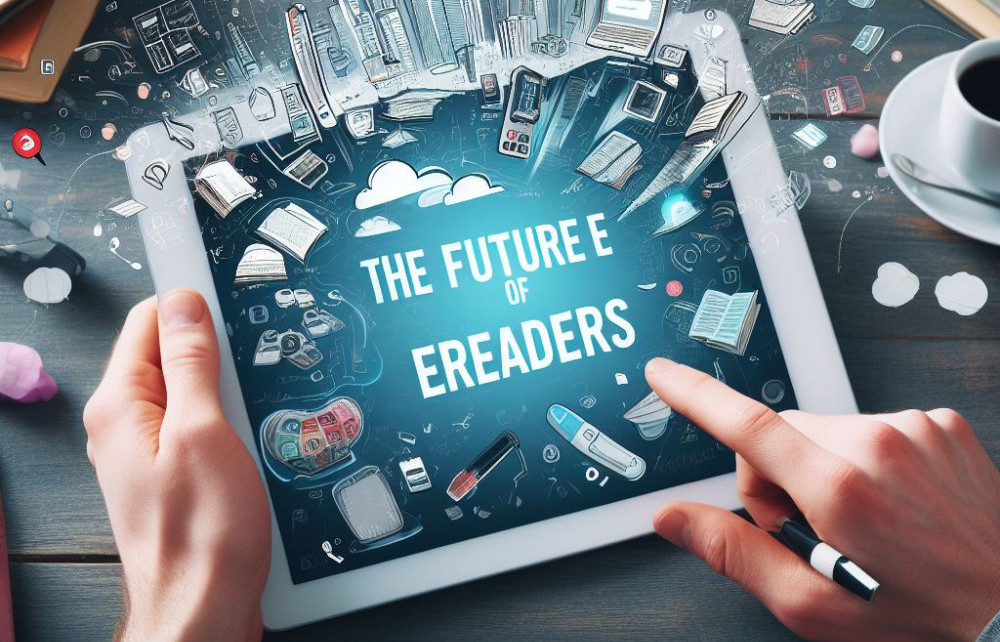
Introduction
The world of reading has undergone a significant transformation with the advent of eReaders. These electronic book readers have revolutionized the way we consume written content. With advancing technology and growing popularity, the future of eReaders holds exciting possibilities. In this article, we will explore the current state of eReaders, emerging trends, and the future of this innovative technology.
The Current State of eReaders
The popularity of eReaders has significantly increased in recent years due to their convenience and versatility. They offer numerous benefits, such as the ability to carry an entire library in one device, adjust font sizes, and read on the go. The eReading industry is flourishing, with a vast number of e-books being released daily, providing extensive resources for avid readers. Notable eReaders like Amazon’s Kindle, Barnes & Noble’s Nook, and Kobo’s eReader are readily available to users. Moreover, smartphones and tablets equipped with apps like Google Play Books and Apple’s iBooks offer excellent eReading capabilities.

Emerging Trends in eReaders
The future of eReaders is shaped by several emerging trends that enhance the reading experience for users:
Advancing Display Technology
To mimic the experience of reading a physical book, eReaders are continuously improving their screen technology. High-resolution displays with improved contrast, colour accuracy, and reduced glare provide users with a more comfortable reading experience. Some eReaders even offer adjustable colour temperature, allowing readers to customize the display according to their preferences.
Personalized Reading Experiences
eReaders and digital platforms are integrating features that enable readers to customize their reading experience. Users can adjust font size, style, line spacing, and margins to suit their preferences. Built-in dictionaries and translation tools facilitate easy access to definitions and translations. Furthermore, data and analytics are utilized to provide personalized reading recommendations based on users’ reading history, making the reading experience more tailored to individual tastes.
Social Reading
Many eReading platforms now offer features that connect readers with others who share their interests. Online book clubs and discussion forums enable readers to engage in meaningful conversations about books. Some platforms also allow users to share notes and annotations, creating an interactive reading experience. Social reading is expected to become an integral part of the eReading landscape, fostering a sense of community among readers.
The Future of eReaders
The future of eReaders is bright, with advancements in technology transforming the way we consume and interact with digital content. Despite challenges such as declining print book sales and issues with digital copyright management, eReaders present opportunities to enhance reading experiences for readers, authors, and publishers.
Enhanced Convenience and Portability
As eReaders continue to evolve, they will become even more convenient and portable. The ability to carry an entire library in one lightweight device will become even more seamless, allowing readers to access their favourite books anytime, anywhere. With advancements in battery life and memory capacity, eReaders will offer extended reading sessions without the need for frequent recharging.
Integration with Smartphones
Smartphones have become an essential part of our daily lives, and their integration with eReaders will shape the future of reading. The convenience of having an eReader on the same device as a smartphone eliminates the need for multiple devices. As more people embrace on-the-go lifestyles, smartphones will become the primary device for eReading. The rise of smartphone reading is evident, with an increasing number of users opting to read on their smartphones.
Interactive and Multimedia Features
eReaders will continue to incorporate interactive and multimedia features, enhancing the reading experience. Touch screens, soundtracks, and video capabilities will provide instant feedback and gratification for users. Interactive reading experiences, such as puzzles and enhanced visuals, will engage younger readers and foster a love for literature. These features go beyond traditional reading, immersing readers in a world of interactive storytelling.
Reader Analytics and Personalization
The future of eReading will usher in a new era of reader analytics. Publishers and authors will have access to valuable insights gathered through big data analysis. This data will drive positive changes and optimize the reading experience for consumers. Publishers can tailor content, layouts, and visuals based on readers’ preferences and reading habits, ensuring a more personalized and engaging experience.

Conclusion
The advent of eReaders has brought about a revolution in the way we read. These devices offer a convenient, portable and feature-rich reading experience. As technology continues to advance, eReaders will continue to shape the future of reading by providing personalized, interactive and social experiences to a wider demographic of readers. Integration with smartphones and the availability of multimedia features will make eReaders even more attractive. With reader analytics driving positive changes, the future of eReaders looks promising for readers, authors, and publishers alike. Join the eReading revolution and discover a new world of literature.
Hi there, the advent of eReaders has brought about a monumental shift in the realm of reading. In the past, avid readers lugged around hefty hardcovers or paperbacks, ensuring they had their favourite titles or the latest bestsellers in hand. Today, with just a single lightweight device, one can carry a whole library. eReaders have come a long way from their humble beginnings and hold a promising future. I truly enjoyed every moment spent reading your post. All the best.
Hey Brian,
Exactly! eReaders (and ebooks and audiobooks ) have revolutionised the way we consume books. And I love it!
Thanks for the comment!
Marios
Hello! I am not an e-reader at all but my daughter is. I have a hard time reading on a tablet but I think it is due to the fact that I belong to an older generation… I love holding a book, and the tactile feeling it brings. Reading on a tablet makes me tired. But I am all for it! I love it now how it allows people to interact and share their experiences and opinions. The built-in dictionaries and translation tools features are awesome! I wish I had that when growing up. That is so handy and makes reading so much fun and accessible. Above all, it is important that people keep reading! Great article about the future of e-readers and how it is a revolution!
Hey there!
Well, as I always say, ebooks are not for everyone. I am a big fan myself, but not always. I elaborate on that in When I use ebooks, audiobooks and printed books. Tablets might not be the optimal way to consume ebooks, I prefer ebook readers like Amazon Kindle and others. They are good for books in a PDF format though 😉
With ebooks, I have my books always with me 😉
Thanks for stopping by!
Marios
Hi there and thank you for the great job You doing!
I agree, reading a book before buying it is quite a far past habituate. Ebooks and ereader are the present and more the future. Ebooks such as readers and audiobooks are the future and the well smeal pages of books are all to be part of the past.
Lookin forward to hear from you,
All the best
Leonard
Hey Leonard,
I don’t think printed books will become obsolete any time soon. Although I prefer ebooks and audiobooks for their practicality, I still appreciate physical books.
Thank you for your comment.
Marios
Fantastic article, Marios! Your in-depth exploration of the future of eReaders really highlights how technology is transforming our reading habits. I’m particularly fascinated by the advancements in display technology and the move towards more personalized reading experiences.
As an avid reader who has transitioned from physical books to eReaders, I’ve noticed a significant improvement in my reading comfort, especially during long sessions. The idea of social reading and building communities around books is intriguing. Do you think this social aspect will change the way authors write, knowing their work will be more collaboratively consumed?
Also, the integration of multimedia features sounds exciting, but I wonder how it will impact the traditional ‘reading’ experience. Will it enhance it, or could it potentially distract from the essence of the written word? Looking forward to seeing how these predictions unfold in the coming years!
Hey GudComp!
About the social aspect – maybe! “The Seven Husbands of Evelyn Hugo” is a book that has won awards on Goodreads. Netflix is interested in adapting it into a TV series. So, why not? We’ll see!
Regarding the multimedia, again, maybe. Traditional ebook readers with e-Ink technology are not suited for multimedia (except for audiobooks), so we’ll have to wait and see.
I loved your comment. Thanks for stopping by!
Marios
I fought long and hard to avoid buying or even trying an e-reader! I love books and couldn’t stand the thought of reading from yet another electronic device.
Stupid me, in hindsight. I travel a lot and read even more. My traveling became way easier when I didn’t have to carry around 10 books for a holiday anymore 😉
The social reading you mention in your article got me interested. This way, one could have a book club with members all over the world. I like that thought! Especially when traveling alone for weeks at a time, I might enjoy this myself.
Thanks for pointing this out to me.
Hi there,
I would say that travelling is one of the situations where ebooks have a significant advantage over printed books, specifically due to the size and portability of e-readers.
There is a great social networking site called Goodreads of which I am a member. I will review it in a future post. Thanks for the suggestion!
Keep reading,
Marios